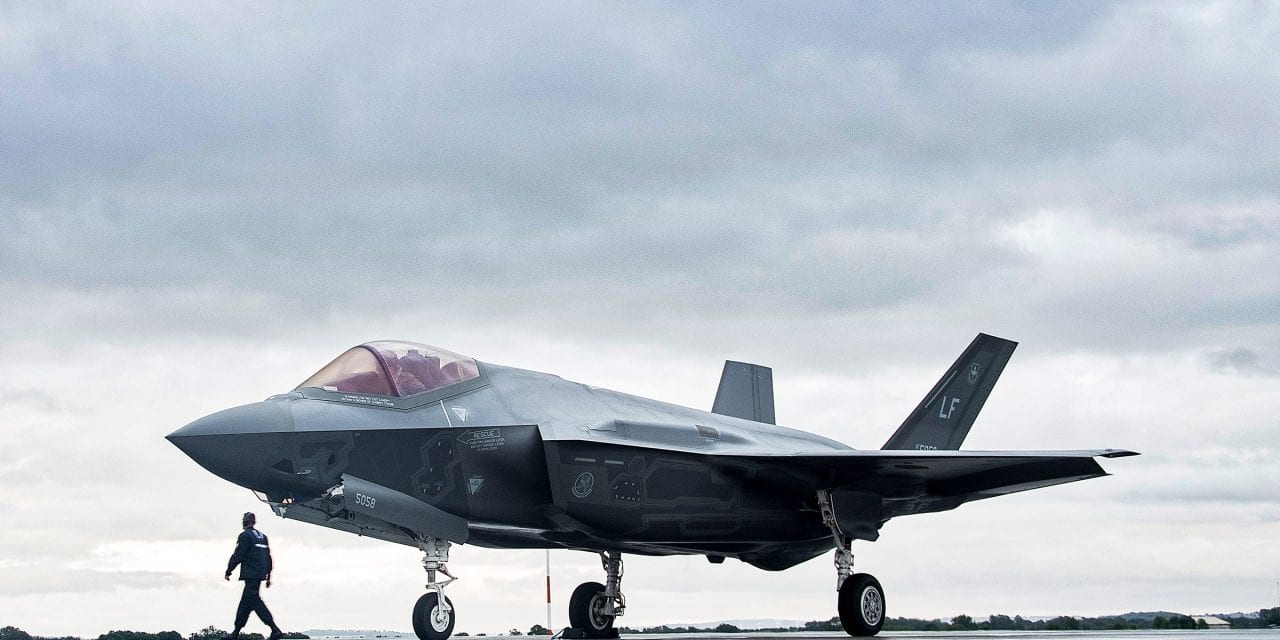Turkish president rebuffed Trump request to release detained American pastor
By Roll Call
Congress is poised to pass legislation that will block the transfer of the F-35 stealth fighter to Turkey, a NATO ally that helps produce the jet, as Turkey moves forward with plans to purchase Russian-made missile defense systems and refuses to release a detained U.S. pastor.
A provision in the fiscal 2019 Defense spending bill would withhold any funds from being used to deliver the jets to Turkey until the secretaries of State and Defense send Congress a comprehensive report on the U.S.-Turkish military and diplomatic relationships. The provision essentially matches language in the fiscal 2019 defense authorization bill, which became law earlier this year.
Conferees for the spending measure approved the legislation Thursday for consideration in the House and Senate, all but ensuring the bill will reach President Donald Trump’s desk before federal funding expires at the end of the month. The $855 billion bill also funds the departments of Labor, Education and Health and Human Services.
The F-35 language, found in the Senate-passed version of the bill, is the latest in a series of punishments the United States has doled out to Turkey. In August, the Trump administration levied sanctions on Turkey’s justice and interior ministers after Turkish President Recep Tayyip Erdogan rebuffed Trump’s request to release Andrew Brunson, an American pastor who has been detained in Turkey for nearly two years.
Congress and the Trump administration believe Brunson, who has been evangelizing in Turkey for more than 20 years, is wrongly detained on false charges of espionage and terrorism. Sen. Thom Tillis, R-N.C., who represents Brunson’s home state and helped author the provision in the defense authorization bill that would block the transfer of F-35s to Turkey, calls the charges against Brunson “bogus.”
Denying Ankara the F-35 not only punishes the Turkish military, which planned to buy more than 100 of the jets, it could keep vital information about the jet out of Russian hands.
Turkey is the only country that has plans to buy both the Russian-made S-400 missile defense system and the American-made F-35. If those weapons systems worked in tandem, it could give the Russian military a front-row seat to the F-35’s capabilities — and, perhaps more importantly, its potential vulnerabilities.
Turkey received its first F-35 in June and Turkish pilots are currently learning to fly the jets at Luke Air Force Base in Arizona.
Meanwhile, Turkey plans to receive its Russian-made missile defense systems no later than July 2019, an acquisition that would require Russian military members to train the Turkish military on how to operate the S-400. Should the Turkish military transfer an F-35 to Turkey and fly it within range of a Russian-operated system, the missile defense operator could glean key information on the F-35 that Russia or its allies could use against the F-35 in other theaters.



















